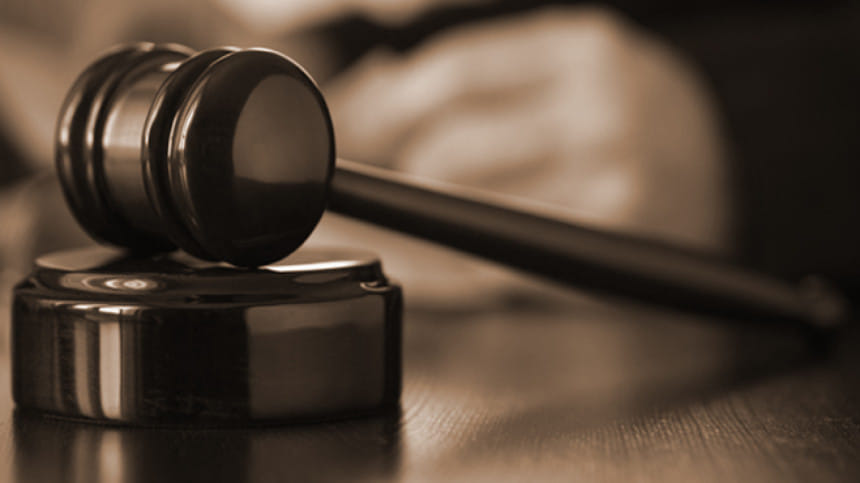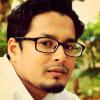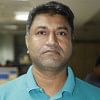Shraban murder case: Three witnesses named without their consent

Three individuals named as witnesses in the case filed over the killing of Mahfuz Alam Shraban during last year's mass uprising said they were unaware of being listed as witnesses.
The case statement lists eight witnesses, including the plaintiff, and mentions the phone numbers of four of them.
This newspaper spoke to all four, and three of them said they had no knowledge of their names being included.
"I didn't know I was made a witness. Who put my name there?" Saiful Islam, 35, told The Daily Star over the phone yesterday.
Saiful, a grocery trader who lived in the same area as the victim, said he had known Shraban as a pharmaceutical officer for a few months but was not present during the incident.
"No one contacted me to be a witness," he said, adding that he had only heard about the incident later.
Shraban's brother, Mostafizur Rahman Bappy, a trader from Naogaon, filed the case with a Dhaka court in March. Following court directives, Mirpur police registered the case as a First Information Report on April 20.
It accuses ousted prime minister Sheikh Hasina and 407 others of involvement in Shraban killing in the capital's Mirpur area on August 5.
Among the accused are 24 journalists; at least 36 former ministers and state ministers; over 41 former lawmakers from the Awami League government; six former advisers to Hasina; businesspersons from seven major groups; five former election commissioners; three former Bangladesh Bank officials; Supreme Court lawyers; doctors; and at least 77 police personnel, including six former inspectors general of police.
Ariful Islam, 22, another listed witness who worked at the same pharmaceutical company as Shraban, also expressed surprise. He said he was not even aware when the case was filed.
"I know about the incident but didn't know I was made a witness," he said, adding that he spoke to a journalist last August but was never approached by anyone after that regarding the case.
Similarly, another witness, Hirok, 34, said, "I don't know anything about this [being made a witness]."
Hirok, who described Shraban as a distant relative, said he helped take the body home in Naogaon but declined to be a witness when asked.
"They put my name in without my knowledge," he said.
Joynul Abedin, a listed witness with consent, said he knew Shraban from Naogaon. Asked about the large number of accused, he remarked, "You're a journalist; you know how these cases work. One person commits the crime, and 10 others are accused. It's a reality. I can't say anything more."
He claimed the case was prepared at an "administrative office in Paltan" before being submitted to court. He, however, did not elaborate.
Contacted yesterday, Bappy, the plaintiff, said those accused were named because of their support for Sheikh Hasina.
Asked why it took nine months to file the case, he said, "I was gathering the names through various means, including newspapers, Facebook, and help from 'some people from the administration'. That's why it took nine months.
"For example, I knew the names of the accused but didn't know their fathers' names. I took support from others to gather such details."
The case also names actor Iresh Zaker as accused number 157.
In this regard, Bappy said, "He supported Sheikh Hasina, so I included his name."
When told that Iresh had extended his support in the July movement, Bappy replied, "I don't know about that. As far as I know, he supported Sheikh Hasina."
Initially, Bappy denied Shraban's political involvement but later acknowledged some links.
"My family has ties with BNP. I have connections with BNP members here [Naogaon]. My brother was somewhat involved in politics, but he was more focused on his job."
Regarding the number of accused, he said, "It was a mass killing. Maybe 10 people were the main culprits. The others are their associates."
Meanwhile, Cultural Affairs Adviser Mostofa Sarwar Farooki yesterday termed the naming of Iresh Zaker in the case "deeply troubling and disturbing".
"I personally know Iresh Zaker. He was involved with the July movement. The state did not file the case; someone else did. In the new Bangladesh, everyone has the right to file cases, but some are abusing this freedom," he told reporters at his office at the Secretariat.
He expressed hope that police would conduct a proper investigation and uphold the truth.


 For all latest news, follow The Daily Star's Google News channel.
For all latest news, follow The Daily Star's Google News channel. 



Comments